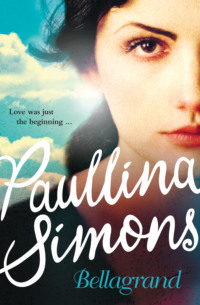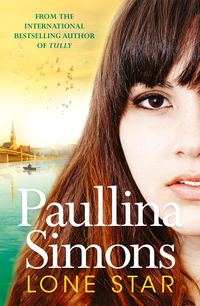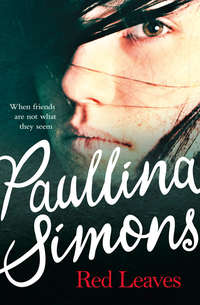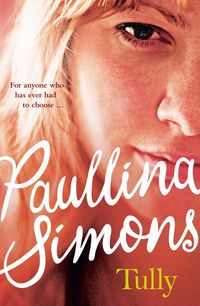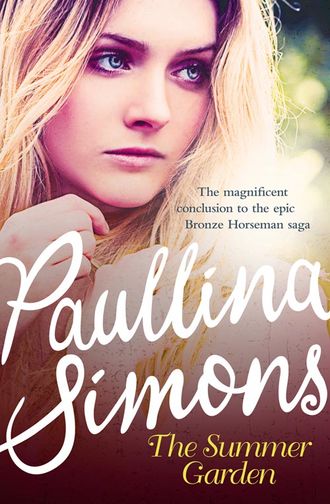
Полная версия
The Summer Garden
They stayed at a motel court inland but every day kept drifting out to the bay. Tatiana was worried about the money running through their fingers. She suggested selling the camper. “We can’t stay in it anyway. You need to wash—”
“I’ll wash in the ocean.”
“I need somewhere to cook your food.”
“We’ll eat out.”
“We’re going to go broke.”
“I’ll get work.”
She cleared her throat. “We need a little privacy …”
“Ah, now you’re talking. But forget it, I won’t sell it.”
They were strolling along Bayshore Avenue, past moorings that fingered out into the water. He pointed to a houseboat.
“You want to rent a boat?”
“A houseboat.”
“A what?”
“A boat that is also a house.”
“You want us to live on a boat?” Tatiana said slowly.
Alexander called to his son. “Anthony, how would you like to live in a house that is also a boat?”
The child jumped up and down.
“Anthony,” said his mother, “how would you like to live in a snowy mountain retreat in the north of Canada?”
Anthony jumped up and down.
“Alexander, see? I really don’t think you should be making all your life decisions based on the joy of one small boy.”
Alexander lifted Anthony into his arms. “Bud,” he said, “a house that is moored like a boat and sways like a boat, but never moves from the dock, right on the ocean, doesn’t that sound great?”
Anthony put his arms around his father’s neck. “I said yes, Dad. What more do you want?”
For thirty dollars a week—the same money they didn’t want to pay Mrs. Brewster—they rented a fully furnished houseboat on Fair Isle Street, jutting out into the bay right between Memorial Park and the newly broken construction site for Mercy Hospital. The houseboat had a little kitchen with a small stove, a living room, a bathroom with a toilet—And two bedrooms!
Anthony, of course, just like at Nellie’s, refused to sleep by himself. But this time Tatiana was adamant right back. She stayed with her son for an hour, until he was asleep in his own bed. The mother wanted a room of her own.
When an utterly bare Tatiana, without even a silk nightgown, lay down in a double-size bed in front of Alexander, she thought she was a different woman making love to a different man. It was dark in the bedroom, but he was also naked, no tank tops, no shirts, no battle gear. He was naked and on top of her, and he actually murmured a bit to her, things she hadn’t heard in a very long while, he took it a little slower, slower than he had in a very long while, and for that Tatiana rewarded him with a breathless climax, and a shy plea for a little more, and he obliged, but in a way that was too much for her, holding up her legs against his upright arms and moving so intensely that small thrilling cries of pain and pleasure drowned her parchment throat, followed by a less shy plea for some more … and he even opened his eyes briefly, watching her mouth moaning for him, Oh my God, Shura. She saw his searching face; he whispered, You like that, do you? He kissed her, but Tatiana unclasped from him and began to cry. Alexander sighed and closed his eyes again, and there was no more.
Alexander got ready to go look for work, Tatiana got ready to take their clothes to the Laundromat. There was no Laundromat nearby. “Maybe we should have rented a house closer to the Laundromat.”
He stopped getting his cigarettes and his money and stared at her. “Just so we’re clear,” he said, “a houseboat on the Atlantic, dawn over the water like you saw this morning, or living by the Laundromat? Are you opting for the latter?”
“I’m not opting,” she said, chastised and blushing. “But I can’t wash your clothes in the Atlantic, can I?”
“Wait for me to come back and we’ll decide what to do.”
When he returned in the late afternoon he said, “I found work—Mel’s Marina.”
Tatiana’s face was so crestfallen, Alexander laughed. “Tania, Mel owns a marina right on the other side of Memorial Park, a ten minute walk from here down the ocean promenade.”
“Does Mel have one hand like Jimmy?” asked Anthony.
“No, bud.”
“Does Mel smell like fish like Jimmy?” asked Tatiana.
“Nope. Mel rents boats. He’s looking for someone to maintain them, and also do a tour-ride twice a day around Key Biscayne and South Miami Beach. We go around, look at the sights and then we come back. I get to drive a motor boat.”
“But Alexander,” said Tatiana, “did you tell Mel you don’t know how to drive a motor boat?”
“Of course not. I didn’t tell you I didn’t know how to drive a camper either.”
She shook her head. He was something else.
“Seven thirty to six,” he said. “And he’s paying me twenty dollars. A day.”
“Twenty dollars a day!” Tatiana exclaimed. “Double the money in Deer Isle, and you don’t have to smell like fish. How can he afford to pay you so much?”
“Apparently rich lonely ladies love to take boat rides to far away beaches while waiting for their husbands to return from the war.”
Tatiana turned away from him so he wouldn’t see her face.
From behind, his arms went around her. “And if I’m very good to the ladies,” continued Alexander, moving her braid away to kiss her neck and brushing his groin against her, “sometimes they tip the captain.”
Tatiana knew he was trying to amuse her, to be light with her, and even as a tear ran down her cheek, she said, patting his hand, “Well, if there’s one thing you know how to do, Alexander, it’s be good to the ladies.”
In the morning, at seven, as Alexander was about to leave for the marina, he said to Tatiana, “Come by to see me just before ten. That’s when we go out for our morning tour.” He picked up Anthony, who was still in his pajamas. “Bud, I’m going to take you on the boat with me. You’ll be my co-captain.”
Anthony’s face shined. “Really?” Then his face fell. “I can’t go, Dad.”
“Why?”
“I don’t know how to steer a boat.”
“Neither do I, so we’re even.”
Anthony kissed his father on the mouth.
“Am I coming, too?” Tatiana asked.
“No. You are going to walk a mile to the store and buy food, and do laundry. Or suntan.” He smiled. “Do whatever you like. But come at twelve thirty to pick him up. We can have lunch together before I have to go out again at two.”
Tatiana kissed her husband on the mouth.
He took his boy with him! What happiness, what joy for Anthony. Tatiana did laundry, bought food and a Cuban cookbook, and sandwich meat, and potato salad and rolled everything back home in a newly purchased wooden cart. She opened all the windows to smell the ocean breeze while she made lunch as strings playing the Poco Allegretto from Brahms’s Third Symphony filled her houseboat from the kitchen radio. She loved that piece. She’d heard it played on Deer Isle, too.
Then she ran through Memorial Park to bring her two men food.
Anthony was apparently a hit on the boat. “He was so busy making friends, he forgot to help his dad steer,” said Alexander. “And believe me when I tell you, I needed his help. Never mind, bud. Maybe tomorrow?”
“I can come again with you tomorrow?”
“If you’re a good boy for your mother, how about every day?”
Anthony leaped and hopped all the way home.
For dinner she made plantains and beef brisket from a recipe in her new cookbook.
Alexander liked it.
Tatiana set about cooking in every conceivable way what she called “the greatest New World creation since corn”—plantain. Not soft, not sweet, but otherwise banana-like, it went with everything. She bought flounder and fixed it with Mexican salsa and tomatoes and pineapples. But the plantains were the centerpiece of the plate. Tatiana had never had corn or bananas or plantains until she came to America.
“Heavenly plantains with rum,” she said, theatrically lighting a match and setting the plantains and frying pan on fire. Alexander was worried and skeptical until she spooned them over vanilla ice cream; the plantains were mixed with butter, dark brown caramelized sugar, heavy cream—and rum.
“Okay, I’m sold. Heavenly,” he said. “Please. Just a little more.”
The oven didn’t work properly; it was hard to make real bread in it. It wasn’t like the great big oven she had in her apartment in New York. Tatiana managed small challah rolls, from a recipe she had got from the Ukrainian Jews on the Lower East Side. It had been four months since her last conversation with Vikki. Her stomach went cold every time she thought of her and of Sam. She didn’t want to think about them. She forced herself not think of them.
Tatiana was good at forcing herself not to think of things.
Alexander liked the puffy and slightly sweet rolls. “But what, no plantain salad?” he teased when the three of them were eating their lunch on one of the picnic tables under the moss oaks and pines in Memorial Park.
She bought Alexander white cotton and linen shirts with white cotton slacks. She knew he was most comfortable in khaki or green fatigues and long sleeve crews—but he had to look like a boat captain.
Maintaining the boat took most of his time between tours—he learned to make repairs to the hull, the engine, the bearings, the fittings, the bilge pumps, the plumbing, the safety gear, the rails. He repainted the deck, replaced broken or cracked glass, changed the oil. Whatever it was, if it needed fixing, Alexander fixed it, all in his captain’s whites and shirtsleeves down to his wrists in the sweltering sun.
Mel, terrified of losing Alexander, gave him a raise to twenty-five dollars a day. Tatiana, too, wished she could give Alexander a raise, for the same reason.
In Miami there was a large Spanish population, and no one heard Tatiana’s Russian accent, no one knew her name was Russian. In Miami, Tatiana fit right in. Though she missed the smallness and the tightness and the smells of Deer Isle, though she missed the largesse, the expanse, the blaze of New York, she liked the Miami vanishing.
She made stuffed cabbage, which she knew Anthony liked from their time in New York. Alexander ate it, but after dinner said, “Please don’t cook cabbage again.”
Anthony got upset. He loved cabbage. And there was even a time when his father enjoyed cabbage pie.
But Alexander said no cabbage.
“Why?” she asked him when they were outside on their boat deck, bobbing above the water. “You used to like it.”
“I used to like a lot of things,” he replied.
You certainly did, Tatiana thought.
“I saw cabbage that grew as big as three basketballs on the mountain heaps of human ashes and remnants of bones in a death camp called Majdanek in Poland,” said Alexander. “It was freak cabbage like nothing you’ve ever seen, grown out of the ashes of dead Jews. You’d never eat cabbage again either.”
“Not even cabbage pie?” she said softly, trying to lure him away from Majdanek and into Lazarevo.
“Not even cabbage pie, Tania,” replied a not-to-be-lured Alexander. “No more cabbage pie for us.”
Tatiana didn’t cook cabbage anymore.
Anthony was told he was not allowed to leave the table unless his plate was empty.
“I’ll leave when I want,” said Anthony.
Alexander put down his fork. “What did you say?”
“You can’t tell me what to do,” said Anthony, and his father got up from the table so swiftly that Anthony knocked over his chair to run to his mother.
Taking him out of Tatiana’s arms, Alexander set him firmly down. “I can and I will tell you what to do.” His hands were on his son’s shoulders. “Now we’re going to try it again. You will not leave when you want. You will sit, you will finish your food, and when you’re done, you will ask to leave the table. Understand?”
“I’m full!” Anthony said. “Why do I have to finish?”
“Because you have to. Next time, Tania, don’t give him so much.”
“He said he was hungry.”
“Give him seconds. But today he will finish his food.”
“Mommy!”
“No, not Mommy—me! Now finish your food.”
“Mom—”
Alexander’s hands squeezed around Anthony. Anthony finished his food and asked to leave the table. After dinner, Tatiana went outside on the narrow deck where Alexander was sitting and smoking. She crouched carefully, uncertainly, by his side.
“You’ve been too soft on him,” he said. “He has to learn. He will learn.”
“I know. He’s so little, though.”
“Yes, when he is my size, it’ll be too late.”
She sat on the floor of the deck.
After a while Alexander spoke. “He can’t leave food on his plate.”
“I know.”
“Do you want me to tell you about your brother starving in Catowice?”
She barely suppressed her sigh. “Only if you want to, darling.” Only if you need to. Because, like you, there are many things I would rather never talk about.
In the POW camp in Catowice, Poland, where the Germans threw Alexander, his lieutenant, Ouspensky, and Pasha into the Soviet half—which meant the death half—Alexander saw that Pasha was weakening. He had no fuel to feed the shell that carried his life. It was worse for Pasha because he had been wounded in the throat. He couldn’t work. What they gave the Soviet men was just enough to kill them slowly. Alexander made a wood spear, and when he was in the forest cutting down trees for firewood, he caught three rabbits, hid them in his coat and, back at camp, cooked them in the kitchen, giving one to the cook, one to Pasha, and splitting one between himself and Ouspensky.
He felt better, but he was still starving. From Tatiana, during Leningrad’s blockade, he learned that as long as he constantly thought about food—about getting it, cooking it, eating it, wanting it, he was not a goner. He’d seen the goners—then in Leningrad, now in Catowice—the last-leggers, as they were called, the men unable to work, who shuffled through the camp’s trash eating what scraps they could find. When one of the goners had died, Alexander, about to dig a grave, found Pasha and three others eating the remains of the dead man’s slops by the fire at the outskirts of the barracks.
Alexander was made a supervisor, which did not endear him to his peers, but it did allow him to get a larger food ration, which he shared with Pasha. He kept Pasha and Ouspensky with him, and they moved into a room that housed only eight people instead of sixty. It was warmer. Alexander worked harder. He killed the rabbits and the badgers, and occasionally he didn’t wait to bring them back to camp. He built a fire and ate them on the spot, half cooked, tearing at them with his teeth. It wasn’t making much of a difference even to him.
And Pasha suddenly stopped being interested in rabbits.
Tatiana’s head was folded over her knees. She needed a better memory of her brother.
In Luga, Pasha is stuffing blueberries into Tatiana’s open mouth. She is begging him to stop, trying to tickle him, trying to throw him off her, but in between mouthfuls of blueberries for himself, he is tickling Tatiana with one hand, stuffing blueberries into her mouth with the other, and pinning her between his legs so she can’t go anywhere. Tatiana finally heaves her small body hard enough to throw Pasha off, onto the pails of blueberries they just brought freshly picked from the woods. The buckets tip over; she screams at him to pick them up and when he doesn’t, she takes handfuls and mashes them into his face, painting his face purple. Saika comes from next door and stares blankly at them from the gate. Dasha comes out from the porch and when sees what they’ve done, she shows them what real screaming is all about.
Alexander smoked, and Tatiana, on weakened legs, struggled up and went back inside, hoping that when Anthony was older they could tell him in a way he would understand, about Leningrad, and Catowice, and Pasha. But she feared he would never understand, living in the land of plantains and plenty.
In the Miami Herald Tatiana found an article about the House of Un-American Activities Committee investigations into communist infiltration of the State Department. The paper was pleased to call it “an ambitious program of investigations to expose and ferret out Communist activities in many enterprises, labor unions, education, motion pictures and most importantly, the federal government.” Truman himself had called for removal of disloyal government employees.
She became so engrossed that Alexander had to raise his voice to get her attention. “What are you reading?”
“Nothing.” She slammed the newspaper shut.
“You’re hiding things in newspapers from me? Show me what you were reading.”
Tatiana shook her head. “Let’s go to the beach.”
“Show me, I said.” He grabbed her, his fingers going into her ribs and his mouth into her neck. “Show me right now, or I’ll …”
“Daddy, stop teasing Mommy,” said Anthony, prying them apart.
“I’m not teasing Mommy. I’m tickling Mommy.”
“Stop tickling Mommy,” said Anthony, prying them apart.
“Antman,” said Alexander, “did you just … call me daddy?”
“Yes. So?”
Bringing Anthony to his lap, Alexander read the HUAC article. “So? They’ve been investigating communists since the 1920s. Why the fascination now?”
“No fascination.” Tatiana started to clear the breakfast plates. “You think there are Soviet spies here?”
“Rampaging through the government. And they won’t rest until Stalin gets his atomic bomb.”
She squinted at him. “You know something about this?”
“I know something about this.” He pointed to his ears. “I listened to quite a bit of chatter and rumor among the rank and file outside my door in solitary confinement.”
“Really?” Tania said that in a mulling tone, but what she was trying to do was to not let Alexander see her eyes. She didn’t want him to see Sam Gulotta’s anxious phone calls in her frightened eyes.
When they didn’t talk about food or HUAC, they spoke about Anthony.
“Can you believe how well he’s talking? He is like a little man.”
“Tania, he comes into bed with us every night. Can we talk about that?”
“He’s just a little boy.”
“He needs to sleep in his own bed.”
“It’s big and he gets scared.”
Alexander bought a smaller bed for Anthony, who didn’t like it and had no interest in sleeping in it. “I thought the bed was for you,” said Anthony to his father.
“Why would I need a bed? I sleep with Mommy,” said Anthony Alexander Barrington.
“So do I,” said Anthony Alexander Barrington.
Finally Alexander said, “Tania, I’m putting my foot down. He can’t come into our bed anymore.”
She tried to dissuade him.
“I know he has nightmares,” Alexander said. “I will take him back to his bed. I will sit with him as long as it takes.”
“He needs his mother in the middle of the night.”
“I need his mother in the middle of the night, his naked mother. He’s going to have to make do with me,” Alexander said. “And she is going to have to make do with me.”
The first night, Anthony screamed for fifty-five minutes while Tatiana remained in the bedroom with a pillow pressed over her head. Alexander spent so long in the boy’s room, he fell asleep on Anthony’s bed.
The following night Anthony screamed for forty-five minutes.
Then thirty.
Then fifteen.
And finally, just whimpers coming from Anthony, as he stood by his mother’s side. “I won’t cry anymore, but please, Mama, can you take me back to my bed?”
“No,” said Alexander, getting up. “I will take you back.”
And the following afternoon as mother and son were walking back home from the boat, Anthony said, “When is Dad going back?”
“Going back where?”
“The place you brought him from.”
“Never, Anthony.” She shivered. “What are you talking about?” The shiver was at the memory of the place she had brought him from, the bloodied, filth-soaked straw on which he lay shackled and tortured, waiting not for her but for the rest of his life in the Siberian resort. Tatiana lowered the boy to the ground. “Don’t ever let me catch you talking like that again.” Or your nightmares now will pale compared to the ones you will have.
“Why does he walk as if he’s got the weight of the whole world on his shoulders?” Alexander asked while walking home. The green and stunning ocean was to their right, through the bending palms. “Where does he get that from?”
“I can’t imagine.”
“Hey,” he said, knocking into her with his body. Now that he wasn’t covered with lobster he could do that, knock into her. Tatiana took his arm. Alexander was watching Anthony. “You know what? Let me … I’ll take him to the park for a few minutes while you fix dinner.” He prodded her forward. “Go on now, what are you worried about? I just want to talk to him, man to man.”
Tatiana reluctantly went, and Alexander took Anthony on the swings. They got ice cream, both promising conspiratorially not to tell Mommy, and while they were in the playground, Alexander said, “Ant, tell me what you dream about. What’s bothering you? Maybe I can help.”
Anthony shook his head.
Alexander picked him up and carried him under the trees, setting him down on top of a picnic table while he sat on the bench in front of him so that their eyes were level. “Come on, bud, tell me.” He rubbed Anthony’s little chubby legs. “Tell me so I can help you.”
Anthony shook his head.
“Why do you wake up? What wakes you?”
“Bad dreams,” said Anthony. “What wakes you?”
His father had no answer for that. He still woke up every night. He had started taking ice cold baths to cool himself down, to calm himself down at three in the morning. “What kind of bad dreams?”
Anthony was all clammed up.
“Come on, bud, tell me. Does Mommy know?”
Anthony shrugged. “I think Mommy knows everything.”
“You’re too wise for your own good,” said Alexander. “But I don’t think she knows this. Tell me. I don’t know.”
He cajoled and prodded. Anthony’s ice cream was melting; they kept wiping up the drips. Finally Anthony, looking not at his father’s prying face but at his shirt buttons, said, “I wake up in a cave.”
“Ant, you’ve never been in a cave. What cave?”
Anthony shrugged. “Like a hole in the ground. I call for Mom. She’s not there. Mommy, Mommy. She doesn’t come. The cave starts to burn. I climb outside, I’m near woods. Mommy, Mommy. I call and call. It gets dark. I’m alone.” Anthony looked down at his hands. “A man whispers, Run, Anthony, she is gone, your mommy, she is not coming back. I turn around, but there is no one there. I run into the woods to get away from the fire. It’s very dark, and I’m crying. Mommy, Mommy. The woods go on fire too. I feel like somebody’s chasing me. Chasing and chasing me. But when I turn around, I’m all alone. I keep hearing feet running after me. I’m running too. And the man’s voice is in my ear. She is gone, your mommy, she is not coming back.”
The ice cream dripped through Alexander’s fingers, through Anthony’s fingers. “That’s what you dream about?” Alexander said tonelessly.
“Uh-huh.”
Alexander stared grimly at Anthony, who stared grimly back. “Can you help me, Dad?”
“It’s just a bad dream, bud,” Alexander said. “Come here.” He picked up the boy. Anthony put his head on Alexander’s shoulder. “Don’t tell your mom what you just told me, all right?” he said in a hollow voice, patting the boy’s back, holding him close. “It’ll make her very sad you dream this.” He started walking home, his gaze fixed blinklessly on the road.
After a minute, he said, “Antman, did your mother ever tell you about her dreams when she was a little girl in Luga? No? Because she used to have bad dreams, too. You know what she used to dream about? Cows chasing her.”



